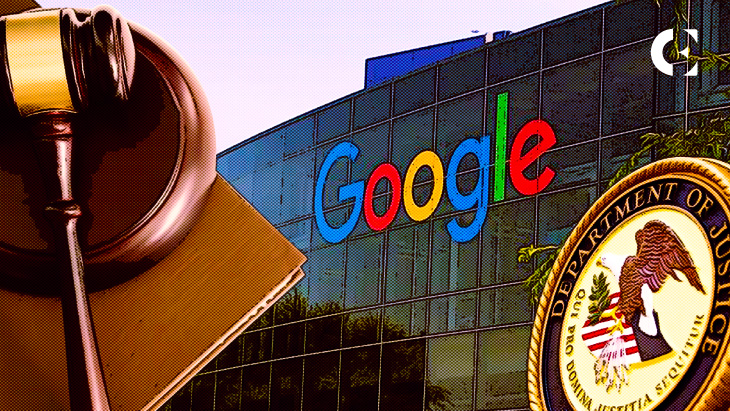- Alphabet Inc. and the Department of Justice are resolving a 2016 disagreement regarding a search warrant.
- In 2016, a US court issued a search warrant related to investigating a criminal crypto exchange.
- BTC-e operated in the US for six years, anonymously processing funds for criminals.
Google and the U.S. Department of Justice have resolved their conflict over the loss of data relevant to the BTC-E investigation from 2016. Google has now pledged to reform its legal compliance program in order to ensure proper responses.
Previously, the agency served Google with a search warrant seeking that it turn over any information it had on BTC-e, a crypto exchange under investigation for alleged money laundering.
In a recent press release, the US office of public affairs noted that the resolution between it and Google is the first-of-its-kind settlement after the search engine giant agreed to reform and upgrade its compliance program.
The reform will ensure that Google maintains timely responses to legal proceedings as required under the Stored Communications Act (SCA). Nonetheless, the US legal department will set up an impartial third-party team to monitor Google’s compliance improvements to ensure that the company complies with its legal duties.
Assistant Attorney General, Kenneth A. Polite, said, “the department is committed to ensuring that electronic communications providers comply with court orders to protect and facilitate criminal investigations.”
In 2016, the United States obtained a search warrant in the Northern District of California for data held at Google relating to the alleged criminal cryptocurrency exchange. However, Google suspended the search warrant’s execution and created rolling productions with only data it could confirm was kept in the United States.
Between 2011 and 2017, BTC-e operated in the US and processed around $9 billion worth of Bitcoin transactions, according to reports. The Justice Department claims the exchange allowed people to exchange Bitcoin anonymously for money laundering purposes.
Disclaimer: The information presented in this article is for informational and educational purposes only. The article does not constitute financial advice or advice of any kind. Coin Edition is not responsible for any losses incurred as a result of the utilization of content, products, or services mentioned. Readers are advised to exercise caution before taking any action related to the company.










